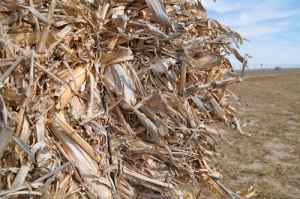Biofuels have so far been among the daftest of human ventures. What a great idea it was to take food stocks such as corn and use them to brew alcohol to fuel 4x4s, so the middle classes can feel virtuous while driving their children to school as people in poor countries starve. It only makes sense if you use the waste products of food, such as the stalks and the husks. It makes sense because you are not using edible foods if you start with the cellulose, and the biomass is cheaper. The process even puts out less carbon dioxide. A big problem has been the bulk of waste products and the cost of transporting it. You can use smaller biofuel refineries close to the source of their raw materials, but the fuel produced tends to cost more.
There’s a new process from Mercurius that uses acids to break down the cellulose and create chloromethylfurfural, a chemical that is cheap to transport, and from which diesel or jet fuel can be made on an industrial scale. While the acids used can be expensive, they can also be separated and recycled. This is a promising alternative to some of the processes being developed which use enzymes to break down the cellulose. It is in its early stages, and has only been done on a small scale. But is might bring nearer the day when we can stop using human foodstuffs to make fuels, and stop taking food out of the mouths of hungry people in order to make environmentalists feel good.
Filed under: Updates |











I don’t know if you are aware that Drax coal fired power station in Yorkshire which provides 7% of the UK’s electrical power has been converted to Bio Fuel. The pellets are imported through Immingham and transported by rail directly to Drax at a rate of one load every hour, 24/7. The economics are favorable and the fuel is renewable indefinitely The CO2 produced is in a returnable cycle. On operations of this scale, Bio Fuel is a contender.